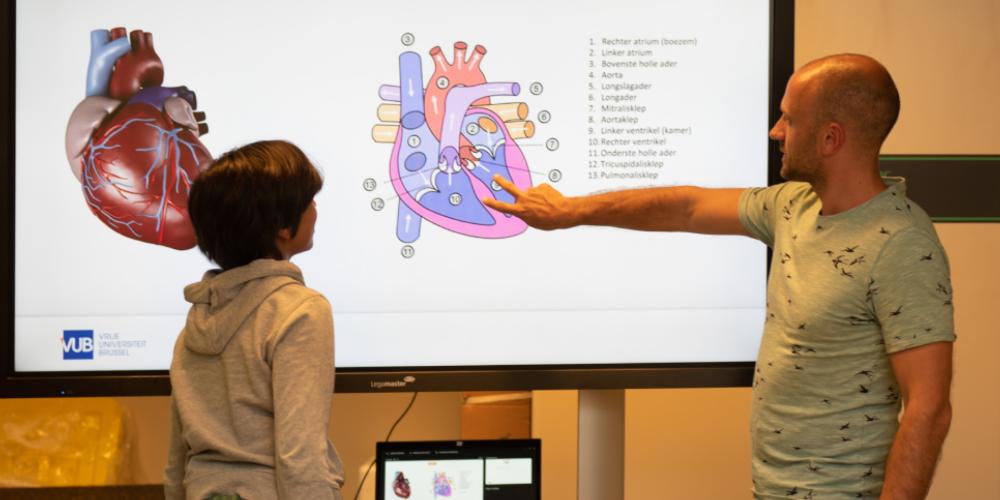
The VUB research group CLEA (Center Leo Apostel) has developed an English-language study enrichment programme called Springbok. The programme is designed for gifted children aged 11 to 15, who study together alongside their regular classes. The principle is similar to a method already used in primary education, known as Kangaroo classes. Children in the Springbok programme will decide after each semester whether they want to continue. As part of the curriculum, pupils take some of their classes on the VUB campus
It isn’t straightforward to offer customised secondary education to gifted children. Many such pupils are looking for deeper interdisciplinary integration of the subjects they learn at school, but the regular system doesn’t offer that option. Springbok aims to meet the demand.
Lessons on campus and at home
Each semester, pupils will have 20 Springbok days, which replace regular schooldays. Eight of these 20 days are immersive sessions on three sites: Brussels (on the VUB campus), Bruges and Dinant. The CLEA research team organises the sessions based on a pedagogical method inspired by scouting, in which groups of different ages travel, eat and learn together.
“Traditionally, universities and libraries have always been stimulating environments for talented adolescents,” says Marta Lenartowicz, a VUB researcher with CLEA. “By sharing the free-thinking and innovative spirit of VUB with them, we want to offer inspiration and care to young people who crave extra input.”
On the remaining 12 days, pupils study at home. This offers a break from the intense social exposure that can be emotionally overwhelming for highly sensitive or introverted children. They follow lessons via a video system that has a game-like environment. Large parts of “remote Wednesdays” don’t involve sitting at a computer but focus instead on developing skills and routines to stay healthy, self-regulated, productive and creative.
Creative lesson content
To encourage the pupils as much as possible, the Springbok lessons and workshops are designed as “research expeditions”. This allows pupils to develop an interdisciplinary understanding of knowledge that is usually divided into separate subjects and grades. They deepen that understanding with insights from various research areas, including ecology, psychology, philosophy, history, politics, sociology, economics and technology. Finally, each Springbok day includes an hour in which pupils complete their regular school assignments.
Parents can already register their children for the Springbok programme that runs from October 2023 to May 2024.